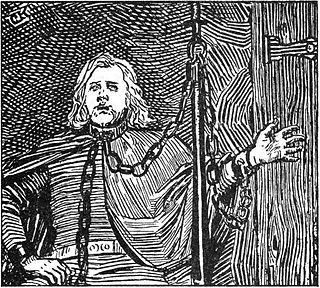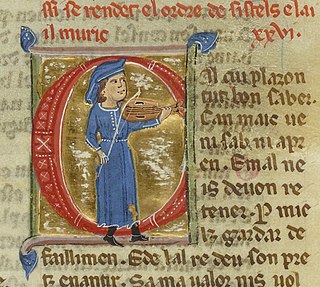 W
WA badchen or badkhn is a type of Ashkenazic Jewish wedding entertainer, poet, sacred clown, and master of ceremonies originating in Eastern Europe, with a history dating back to at least the seventeenth century. The badchen was an indispensable part of the traditional Jewish wedding in Europe who guided the bride and groom through the stages of the ceremony, act as master of ceremonies, and sing to the bride, groom and in-laws with the accompaniment of klezmer musicians. They also had a traditional role on holidays such as Hanukkah or Purim. Today they are primarily found in Chassidic communities.
 W
WIn Celtic cultures, a bard is a professional story teller, verse-maker, music composer, oral historian and genealogist, employed by a patron to commemorate one or more of the patron's ancestors and to praise the patron's own activities.
 W
WThe Court of Minstrels was a court held in Tutbury, Staffordshire, for minstrels from the nearby counties. The court was founded by John of Gaunt, the Duke of Lancaster, who held Tutbury Castle, for the encouragement of the minstrels' art and for their better regulation. A King of the Minstrels governed the court and juries of minstrels adjudicated in disputes and complaints. The court met annually at Tutbury on the Assumption of Mary, 15 August, and the following day held entertainments including the Tutbury bull run. The court was ordered to cease in 1778 but seems to have continued into the early 19th century.
 W
WA jester, court jester, or fool was a member of the household of a nobleman or a monarch employed to entertain guests during the medieval and Renaissance eras. Jesters were also itinerant performers who entertained common folk at fairs and town markets, and the discipline continues into the modern-day, where jesters perform at historically-themed events.
 W
WA Meistersinger was a member of a German guild for lyric poetry, composition and unaccompanied art song of the 14th, 15th and 16th centuries. The Meistersingers were drawn from middle class males for the most part.
 W
WA minstrel was a medieval European entertainer. Originally describing any type of entertainer such as a musician, juggler, acrobat, singer or fool, the term later, from the sixteenth century, came to mean a specialist entertainer who sang songs and played musical instruments.
 W
WA Skald, or skáld, is one of the often named poets who composed skaldic poetry, one of the two kinds of Old Norse poetry, the other being Eddic poetry, which is anonymous. Skaldic poems were traditionally composed on one occasion, sometimes extempore, and include both extended works and single verses (lausavísur). They are characteristically more ornate in form and diction than eddic poems, employing many kennings and heiti, more interlacing of sentence elements, and the complex dróttkvætt metre.
 W
WA troubadour was a composer and performer of Old Occitan lyric poetry during the High Middle Ages (1100–1350). Since the word troubadour is etymologically masculine, a female troubadour is usually called a trobairitz.